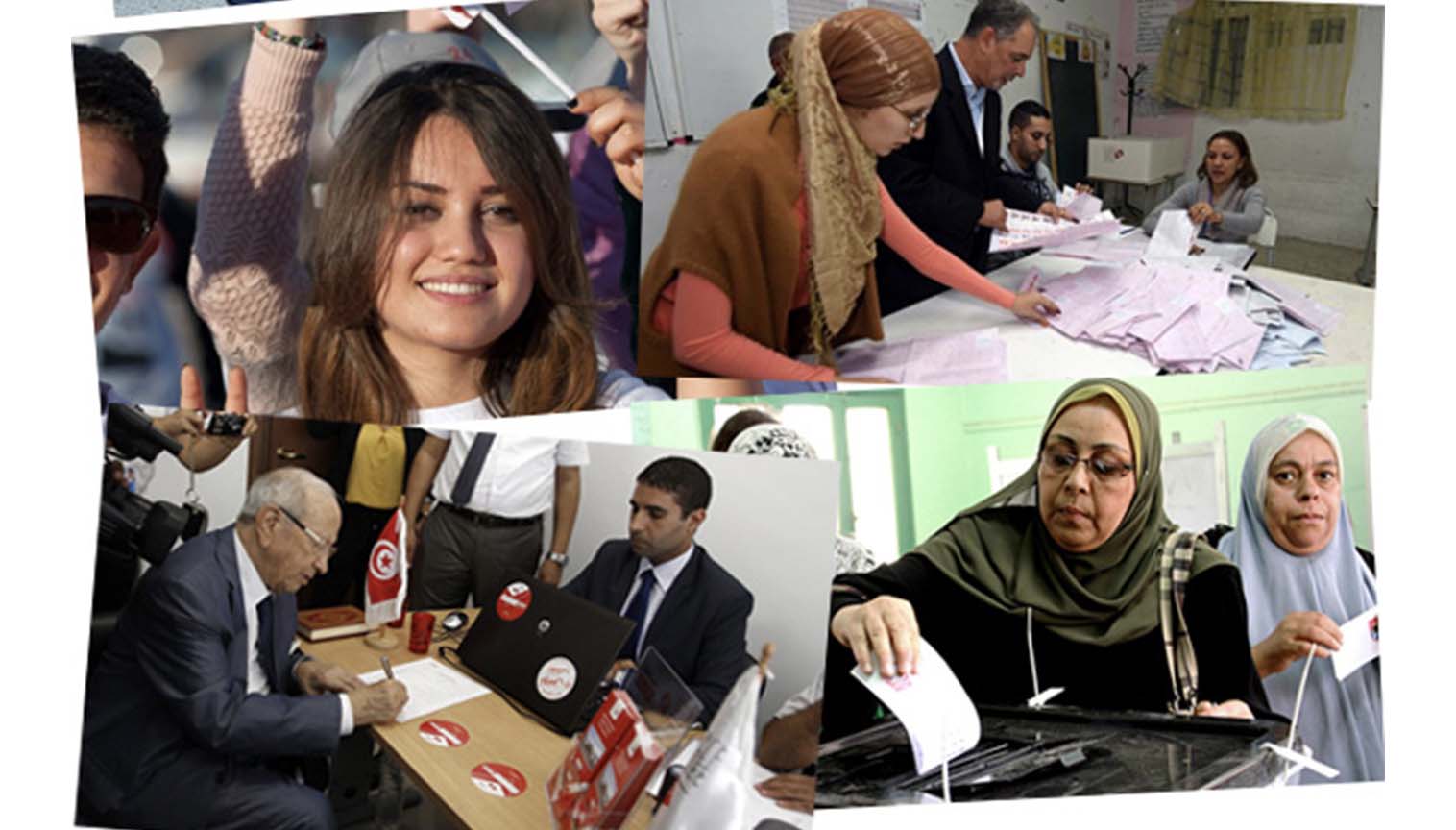
In the parliamentary elections held in Tunisia in line with the new constitution, the secular liberal Nidaa Tounes Party emerged as the leading party. The party leader is Beji Caid Essebsi, who served as the Prime Minister of the transitional government formed after the collapse of the Zine el-Abidine Ben Ali administration and as a minister in the time of the Bourguiba regime. Es-Sebsi is also the candidate of the Nidaa Tounes party in the presidential election that will be held on November 23rd, 2014.
The independent Supreme Electoral Council announced that 70 people have applied for candidacy in the upcoming presidential election. The current President, Dr. Mohamed Moncef Marzouki of the center-left Republican Congress Party – a human rights advocate and medical doctor – is one of the most confident candidates. Kamel Morjane, the last Foreign Minister of the deposed leader Ben Ali, will be standing for the National Destourian Initiative Party
The favorite name in the elections is Essebsi. It appears almost certain that the experienced politician, who was born in 1926, is the one who will most likely win outright in the first round and will become the first president elected by the public.
Nevertheless, if no candidate wins more than 50% of the votes in the first round, a second round will be held on November 30th.
On the other hand, the prevalent question on people’s minds is the future that awaits the Ennahda Movement, which is not standing in the presidential elections, and its leader Rashid al-Ghannushi.
There is no doubt that the conservative-democratic Ennahda Movement handing the power over to the Nidaa Tounes Party has allowed certain truths – particularly the fact that the expectation of change is very high in the country- to see the light of day in Tunisia.
Actually these consequences were no surprise at all; even though al-Ghannushi issued determined messages of compromise to the opposition and revealed a sincere belief, in both his words and actions, that democracy is the most useful and beneficial system, it was estimated that the Ennahda Movement would fail to win this election. As a matter of fact, the media coverage about the party emphasized that the social, cultural and political organization of the party was insufficient and that it fell short in terms of running the government. On the other hand, the Ennahda Movement was held responsible for the economic problems experienced throughout the administration, for the armed attacks on politicians and soldiers and for the acts of violence that ensued: Of course, the generally biased and ideological attitude and approach employed by the media in the country should also be taken into consideration.
Another dimension of the issue is the notion that the Ennahda Movement renounced power for the sake of democratization in the country. Indeed, while it was possible for them to win the election once more against powerful opposition and organized electoral policies, it is not difficult to see that the members of the Ennahda Movement, and al-Ghannushi in particular, made sacrifices to prevent a military coup in the event of the opposition losing, and were more interested in maintaining balances for the sake of democracy in the country than in winning the election. In addition, such talk is also compatible with the party’s and al-Ghannushi’s general political behavior.
The fact that the Ennahda Movement and its leader Rashid al-Ghannushi made great contributions to the democratization of the country is one that is accepted, even by their opponents. Their peaceable, conciliatory policies and tolerant democratic attitude are visible and positive aspects of the Ennahda Movement and al-Ghannushi. Al-Ghannushi’s approval of ideas such as the possibility of a secular and even a Marxist party being set up within an Islamic state and of a woman being the head of state, his appointing the left-leaning al-Marzouki as President, even though he won the elections, and his inclusion of left-wing parties as coalition partners in the government as well as his drawing up the new constitution with other politicians have all taken place in the history as measures worthy of respect that have contributed greatly to the development of democracy in the country. Avoidance of all initiatives that might form the basis of a military coup d’etat or civil war and a sincere determination to establish political order in the country are recognized among the successes of al-Ghannushi and his party.
It is obvious that the Ennahda Movement and al-Ghannushi, who congratulated the Nidaa Tounes Party in the immediate wake of the election, will continue to contribute to the future of Tunisia. In doing so, it is a certainty they will make no concession on their peaceable and conciliatory attitudes: Something else that is certain is that consecutive elections in Tunisia have had a highly positive impact on the democratization of Tunisia and normalization of its politics. We hope that Tunisia, which suffered less harm than anyone else in the Arab Spring, will maintain the impetus it has attained of late, and that the real winners will be the Tunisian people, universal peace and democracy.
http://newsrescue.com/second-stage-transition-tunisia-future-ennahda-movement/#ixzz3MYgiBnmu


